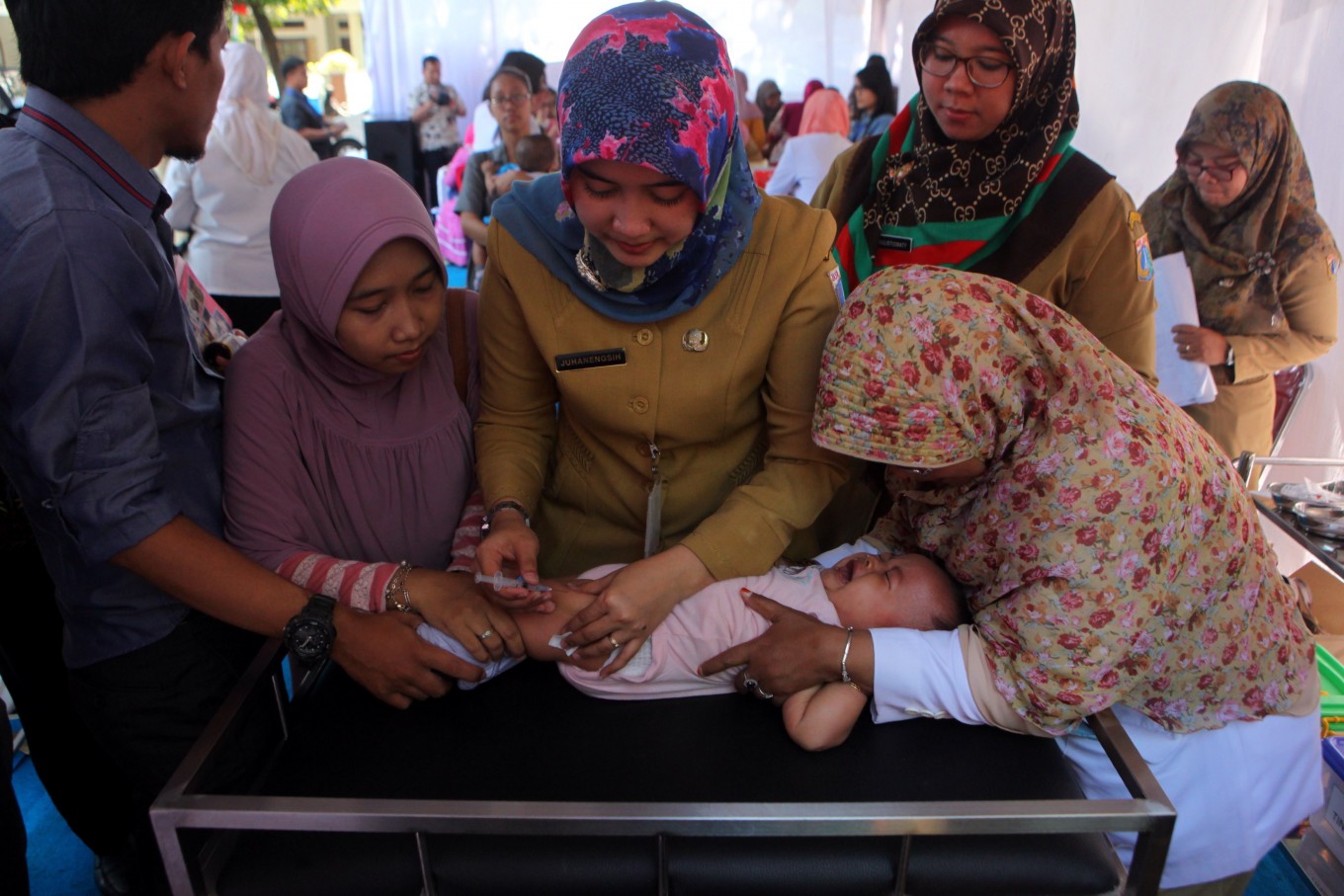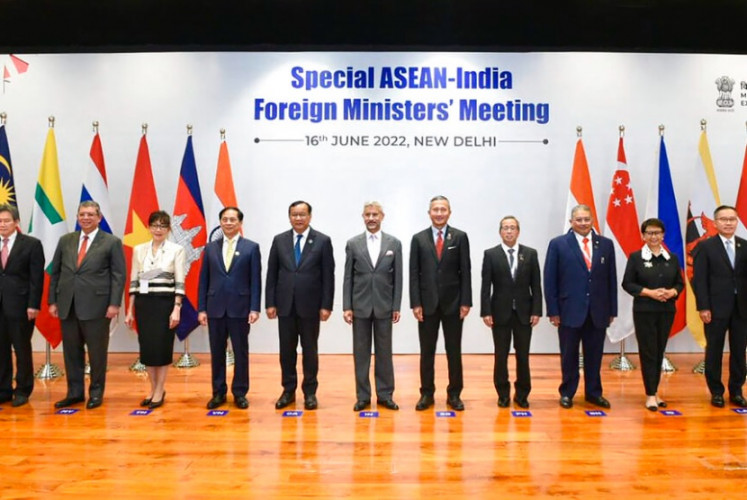Avoiding the virus
Change Size
 Puskemas Ciracas' staff administers vaccines to a child in East Jakarta, Monday July 18, 2016. (The Jakarta Post/Seto Wardhana)
Puskemas Ciracas' staff administers vaccines to a child in East Jakarta, Monday July 18, 2016. (The Jakarta Post/Seto Wardhana)
T
he revelation of the first human case of monkeypox in Singapore has rung alarm bells for Indonesia, which has a record of outbreaks of zoonotic diseases.
With porous borders and a large population, the archipelago provides easy access for the transportation of goods, humans and animals, making it susceptible to transboundary diseases.
In 2003, the country was not only among the hardest hit by avian influenza ( H5N1 ), it was also affected by the SARS outbreak that was spreading in Singapore.
The H5N1 virus killed 168 people in Indonesia, largely because of poultry-to-human transmission, while two were infected with SARS and recovered. In Singapore, SARS killed 32 people.
The finding of the monkeypox virus in Singapore, the fourth country that has reported contagion outside of Africa where the virus originated, poses a risk to vulnerable cross-border travel. Neither Indonesia nor Singapore have declared the monkeypox finding a public health emergency.
Not only is the city-state reachable through sea transportation from Batam, the Riau Islands, many flights from Singapore are destined for numerous cities in Indonesia, including Lombok, West Nusa Tenggara.
Batam has designated the Batam Free Trade Zone Hospital and Embung Fatimah Public Hospital as the main providers of special treatment for suspected monkeypox cases. Indonesian port authorities have heightened health surveillance by providing thermal checks for people arriving at airports and seaports. This is to enable people with the disease’s symptoms — lesions, fever, muscle aches and chills — to easily be treated by medics.
The Health Ministry has yet to increase the alert status on the disease. Although this is reasonable, considering the World Health Organization (WHO) defines the monkeypox virus as milder than smallpox, it may not be wise to underestimate the disease. With the presence of other tropical diseases that the country is still struggling to get rid of, another disease will make the tasks of the country’s health workers even more laborious.
The authorities should continue to implement measures to mitigate the threat of the disease and ensure treatment is readily available. It must actively inform the public about how to avoid contagion.
The WHO has said there are no specific treatments or vaccines available for monkeypox, but outbreaks can be controlled. The smallpox vaccination has been proven to be 85 percent effective in preventing monkeypox, but the vaccine is no longer available after the disease’s global eradication. The virus, though mild, adds to health worries including the fact that basic vaccinations have yet to achieve 95 percent herd immunity for various diseases.
Campaigns for basic vaccinations are still urgently needed and should be targeted at those who think vaccinating one’s child is one’s own choice.
With earlier experiences of pandemics, the authorities are expected to act with prudence and transparency on the latest virus. The Batam Health Agency has said it will continue to monitor the situation until Singapore declares it is free of the virus.








